
Via Youtube. Bach - Toccata and Fugue in D Minor (ultimate 8-bit, NES version). https://www.youtube.com/watch?v=pv_XmCC6psU. Accessed January 2017.
The first time I heard Vivaldi’s The Four Seasons I wasn’t listening to the radio, watching a movie, or studying in a conservatory — I was exploring a high-society flying yacht in Mega Man Legends 2 (2000). Similarly, you might think my introduction to baroque musical concepts such as basso continuo and counterpoint would have been while listening to Bach, but it was actually while listening to my father and older brother play the Legend of Zelda (1986). I am a classically trained musician and musicologist and I owe it all to the compositions that were played the most in my childhood: video game music.
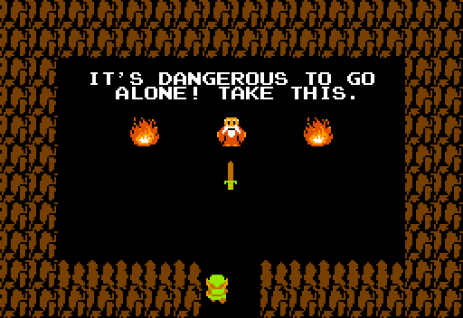
(It's Dangerous to Go Alone!. The Legend of Zelda. https://pbs.twimg.com/media/Ck8CqJcWUAAVIgu.jpg. Accessed January 2017)
Probably not what Bach thought he’d be compared to one day
Video game music, of all things, seems to be getting bigger and bigger. Today we have fully orchestrated video game music concerts such as Distant Worlds and Symphony of the Goddess touring across the world, super-star composers such as Sir Paul McCartney and Trent Reznor are writing music for video games, and major music retailers are releasing an astronomical amount of video game soundtracks every year. Just as any sub-genre of music, video game music now has its own dedicated audience full of fans, professional appreciators, and critics.
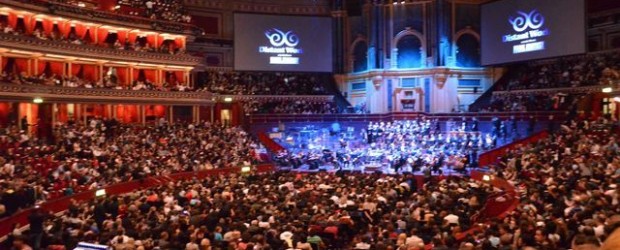
(Distant Worlds Concert. London. http://cetraconnection.net/2012/09/distant-worlds-in-deutschland/. Accessed January 2017.)
Concerts like Distant Worlds, which features music from the well-known Final Fantasy game franchise, are rapidly changing the demographics of orchestral audiences.
The reason for all the recent hubbub about video-game-related topics is simple; people who play video games have finally gotten older. It's safe to say that video games were often designed with children in mind, but the surprising longevity and evolution of the video game industry has incidentally created an increasingly aged audience. In 2015, Bloomberg reported that the average age of today’s video game players is 37 years old. Many of these adult gamers are now challenging the idea of what video games can and should be by expecting emotional connections to the video games they invest time in, and game creators are responding by making elements such as music more integral to the design of video games. It's really not unlike movies; some watch movies like Die Hard when they're younger, but as they get older, they sometimes crave something a little more classic, like Casablanca.
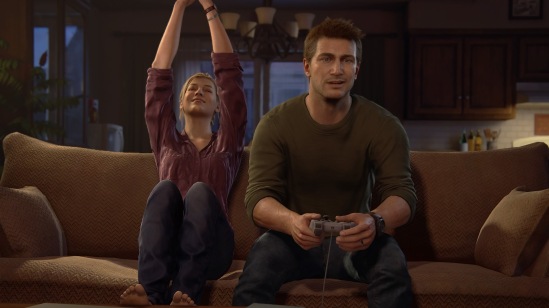
(Figueroa, Joshua. KMFA Contributor. 2017.)
Video Games like Uncharted 4 aren’t just about action set-pieces. They aim to emotionally invest players in stories with characters they actually care about.
As an aging video game enthusiast myself, I also began to think more critically about video games and game music while pursuing my undergraduate degree in musicology. Throughout my education I was learning a lot about music theory, history, and criticism, and I found myself relating it to video game music. Why did I remember and love the game soundtracks I did, how did the music inform my opinion of the games in question, how could I notate and study the reggae influences of the main theme to Super Mario Bros. (1985), and why was there so much progressive-rock in Final Fantasy VII (1998)?
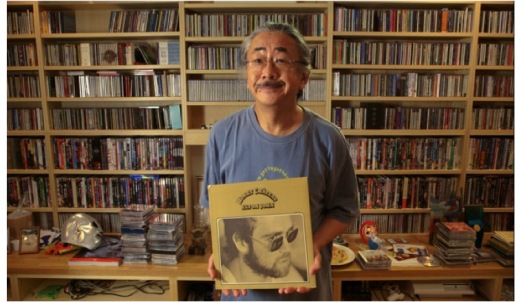
(Red Bull Music Academy. Nobuo Uematsu. 2014. http://image2.redbull.com/rbcom/010/2014-10-02/1331682336309_2/0010/1/1500/1000/2/nobuo-uematsu.jpg. Accessed January 2017.)
During his tenure as the lead composer for the Final Fantasy Franchise, Nobuo Uematsu shared the sounds of progressive-rock with a new generation by paying homage to acts like Elton John, Deep Purple, and Genesis.
When the time came to plan my thesis I knew I needed to finally put pen to paper and write an academic paper on video game music, although it seemed like a daunting task at the time. There wasn’t exactly a chapter on video game music in my history textbooks after all, and outside of a few internet forums, who else writes or talks about music theory and history in video game music?
As it turns out, there is an entire academic practice devoted to the study of video game music, aptly called ludomusicology. The name is derived from the two academic fields of musicology (the study of music) and ludology (the study of games).
As with musicology in general, ludomusicologists analyze, discuss, and write about music and the way it connects to musical history and our society. In a field as new as ludomusicology, the research being done often features topics that have never even been considered, such as the disharmony between silence, morality, and heroism in the video game Shadow of the Colossus (2005), the historical influence of physical musical instruments in the design of Nintendo games, and Michael Jackson’s secret contributions to the soundtrack of Sonic the Hedgehog 3 (1994).
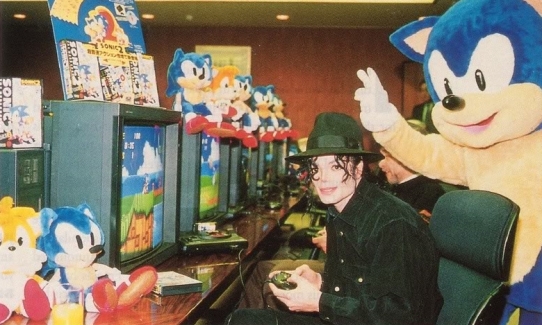
(Michael Jackson Plays Sonic. http://www.localstrike.com/off-topics-181/mito-confirmado-michael-jackson-participo-de-la-banda-sonora-de-sonic-3-25618. Accessed January 2017.)
No, I’m not kidding.
And wouldn’t you know it, there’s about to be a whole gaggle of ludomusicologists coming to Austin this week! The Sarah Butler School of Music will be hosting the 4th annual North American Conference on Video Game Music on January 14-15, bringing together scholars from around the world to present and discuss developing research on video game music. The Keynote speaker this year is Penka Kouneva, whose work as a composer and orchestrator spans across both film and video games in titles such as Prince of Persia: The Forgotten Sands, Gears of War 3, and Bloodborne. For more information on the conference, visit their website at http://vgmconference.weebly.com/.
For those interested in reading more about ludomusicology, there are actually some really great academic texts on the subject!
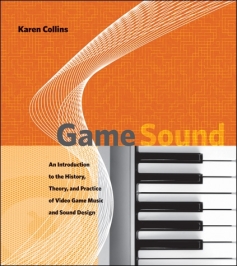
(Collins, Karen. Game Sound. https://mitpress.mit.edu/books/game-sound. Accessed January 2017.)
Game Sound: An Introduction to the History, Theory, and Practice of Video Game Music and Sound Design – This text is the absolute primer on video game music history and theory. Collins thoroughly explains the most essential of concepts needed to comprehend the large, vocabulary-ridden world of ludomusicology.
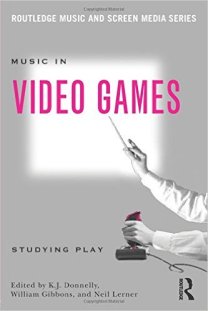
(Varney, Jayne. Music in Video Games. 2014. https://www.routledge.com/Music-In-Video-Games-Studying-Play/Donnelly-Gibbons-Lerner/p/book/9780415634441. Accessed January 2017.)
Music In Video Games: Studying Play – A collection of academic essays, usually case studies of games, with topics ranging from Donkey Kong to Plants vs. Zombies. This is easily one of the best collections out there right now and gives the reader a great sample of some of the leading academics in the field.
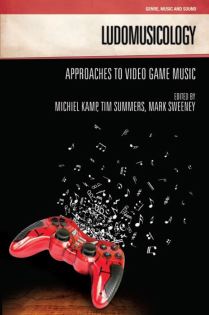
(Fritsch, Melanie. Ludomusicology: Approaches to Video Game Music. http://www.ludomusicology.org/wp-content/uploads/2015/08/Ludomusicology-Equinox2016Cover.jpg. Accessed January 2017.)
Ludomusicology: Approaches to Video Game Music – Hot off the presses, this publication features further research on video game music that focuses on new ways to conceptualize and academically approach the incredible variety in the video game medium. An essential read for any budding ludomusicologist.